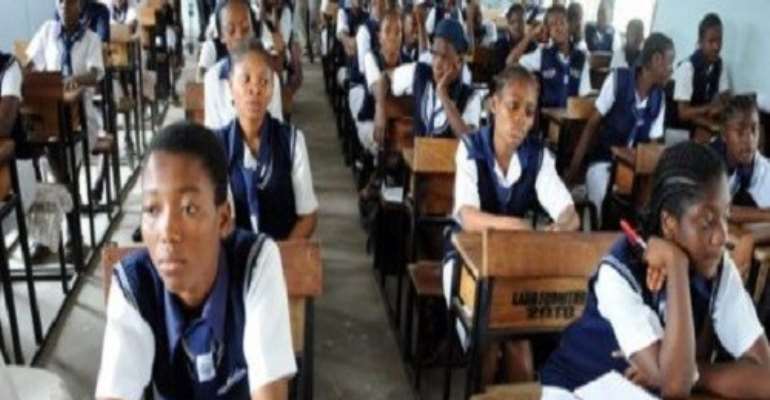Re-introduction of History in schools' curriculum – Authority

One major event that took place last week was the announcement by the Federal Government of its intention to reintroduce the teaching of History as a subject in primary and secondary schools in Nigeria from next academic year.
Announcing what obviously has come to many Nigerians as happy news was the Minister of Education, Alhaji Adamu Adamu.
The Minister who disclosed this in Abuja last Thursday, during an event to mark the reintroduction of the subject, said the move will enable children to know their past and work hard to ensure a more united Nigeria. According to Adamu, the reintroduction of the subject which will be taught in primary and junior secondary schools across the country, followed the sustained clamour by stakeholders in the nation's education sector.
While calling on experts involved in the re-introduction of the subject to develop curricula objectives and contents that will lead to positive learning outcomes, Adamu called for support to ensure the successful implementation of the project. According to him, 'I therefore urge all stake¬holders, state governments, commissioners for education, schools, teachers, and parents to embrace and key into this development and ensure a proper implementation of the History curriculum when it is finally developed', he said.
Many Nigerians were appalled by the decision of the Federal Government to remove History from primary and secondary schools. Many stakeholders have, for some years, been agitating for the return of the subject as an examination subject.
The story of the 'death and resurrection' of History is a very long one with many Nigerians reasoning that there was no cogent reason ab-initio to scrap the Subject from our educational curricula.
In his famous paper titled 'Assault on the Teaching of History in Nigeria', Professor Michael Omolewa, Officer of the Order of the Niger (OON) and an Emeritus Professor of the History of Education had contended that 'there has never been any controversy about the value of history for nation building or the development of an individual, his society or larger community.' Prof. Omolewa went further to say that 'the appreciation of the status of history has also been shown in the observation by the Nigerian elder statesman, Nwafor Orizu, who asserted, as far back as 1944 in his book titled, 'Without Bitterness' that 'Unless we know what we are and how we came about to be what we are, we shall certainly be unable to know where and how to go further'
Professor Alice Jekayinfa, President of the History of Education Society of Nigeria, observes, 'History as a discipline has been relegated in Nigeria whereas the discipline is the bedrock of any nation,' insisting that History instils patriotism and nationalism in the minds of citizens of any nation.'
We also take note of the assertions by Robin Walker that, 'History is a vast umbrella subject. It encompasses all disciplines, not just political and cultural history. It therefore includes literature, religion, the social and natural sciences, the arts, technology, and mathematics. To be ignorant of the political and cultural history of a people is also to be ignorant of the contributions of that people to all areas of intellectual activity.'
Omolewa went down memory lane to give insights into how History suffered the sad fate that befell it in the recent years. According to him, 'the historic assault on history teaching can be traced to the assumptions of the American trained educators, the impact of the United States - assisted Ohio Project, the Ayetoro Project, the subsequent influence of the Comparative Education Studies and Adaptation Centre (CESAC), and the contribution of the Nigerian Educational Research Council (NERC). All of these institutions, and programmes, supported by the increasingly powerful bureaucracy which emerged with the coming of military dictatorship led to the gradual exit of history from school curriculum. There is also the need to add the input of some powerful forces that were able to influence curriculum development either directly or by proxy. Historical scholarship will benefit from a further exploration of the impact that has been made by the seemingly faceless lobbyists and bureaucrats who may have been uncomfortable about the trend of knowledge availability about the course of the history of the nation and were resolved to put an end to the teaching of the subject. The new Curriculum saw the Introduction of the social studies and gradual elimination of history at the primary schools and the junior secondary schools.'
Beyond these facts, there have been some other reasons advanced for cancelling the teaching of History, such fears by some leaders that it could lead to divisive interpretations to major events in post-independence Nigeria, chief among which is the Nigeria-Biafra war. We consider these reasons as flimsy and an attempt by the Nigerian nation to run away from its shadows. There are many books on the Nigerian civil war, just like any other issue that some people are scared of discussing and each of these books puts its accounts from the perspectives of the writer(s). Even the European and African History that were taught in Nigerian schools before had varying accounts of most of the topics and students and their teachers dealt with them conveniently.
Again, the idea of trying to run away from reality is a dangerous culture that obviously developed in Nigeria as a result of long period of military rule and must be discarded now that civil rule is taking deep root in the country. We commend the Federal Government for reintroducing History and urge stakeholders to take good advantage of this opportunity to give sound and balanced education to our pupils/ students so that the country would produce good Nigerians and not students who know nothing about themselves except the toy called computer and its accessories.
